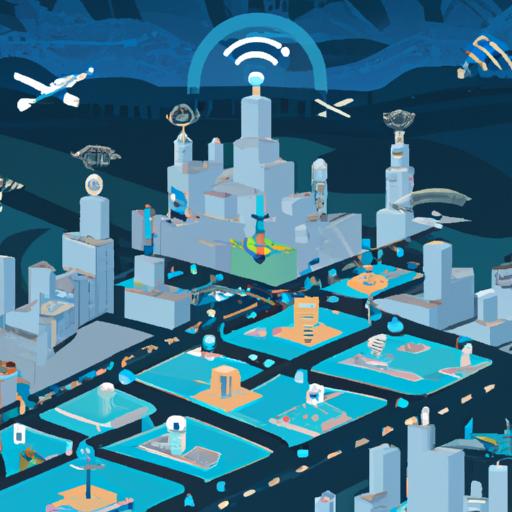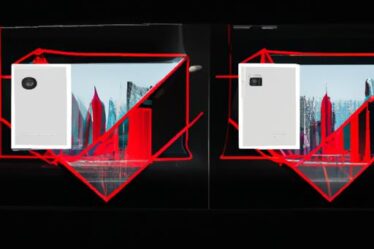
Introduction
In today’s rapidly evolving digital landscape, the concept of Internet of Things (IoT) platforms plays a pivotal role in shaping the way we interact with technology. But what exactly is an IoT platform? Simply put, an IoT platform serves as a central hub that allows devices to connect, communicate, and share data seamlessly. This interconnected network opens up a world of possibilities, revolutionizing how we interact with our surroundings.
The importance of IoT platforms in the digital age cannot be overstated. With the sheer volume of data generated by connected devices, businesses and individuals alike can harness this wealth of information to drive innovation, streamline processes, and enhance overall efficiency. By leveraging the power of IoT platforms, organizations can gain valuable insights into consumer behavior, optimize operations, and stay ahead of the curve in an increasingly competitive market. So, let’s delve deeper into the world of IoT platforms and explore the endless possibilities they offer in transforming our digital landscape.
Key Features of an IoT Platform
Connectivity
The cornerstone of any IoT platform is its ability to facilitate seamless connectivity between devices. Whether it’s through wired or wireless networks, IoT platforms enable devices to communicate with each other, collect data, and execute commands in real-time. This interconnectedness forms the foundation for the entire IoT ecosystem, enabling a wide range of applications and use cases.
Data Management
In the world of IoT, data is king. IoT platforms are equipped with robust data management capabilities that allow for the collection, storage, and analysis of vast amounts of data generated by connected devices. By efficiently managing this data, organizations can extract valuable insights, monitor performance, and make data-driven decisions to drive business growth and innovation.
Security
With the proliferation of connected devices, security is a top priority for IoT platforms. Robust security measures, such as encryption, authentication, and access control, are essential to safeguarding sensitive data and protecting against cyber threats. By implementing stringent security protocols, IoT platforms ensure the integrity and confidentiality of data, providing peace of mind to users and organizations alike.
Scalability
As IoT ecosystems continue to expand, scalability becomes a critical factor in the success of IoT platforms. A scalable IoT platform can accommodate growth by seamlessly adding new devices, handling increasing data volumes, and adapting to evolving business needs. Scalability ensures that IoT platforms can keep pace with the demands of a dynamic digital landscape, enabling organizations to scale their operations and drive innovation.
Considerations for Choosing an IoT Platform
Compatibility with Existing Systems
When selecting an IoT platform, one crucial consideration is its compatibility with your existing systems. Seamless integration is key to ensuring that your IoT devices can communicate effectively and share data across all aspects of your network. By choosing a platform that aligns with your current infrastructure, you can streamline the implementation process and avoid potential compatibility issues down the line.
Scalability and Flexibility
Scalability is another vital factor to consider when choosing an IoT platform. As your business grows and your IoT network expands, you need a platform that can accommodate this growth seamlessly. Look for a platform that offers the flexibility to scale up or down based on your needs, allowing you to adapt to changing requirements and future-proof your IoT ecosystem.
Security Measures
In the age of cyber threats and data breaches, prioritizing security is paramount when selecting an IoT platform. Ensure that the platform you choose incorporates robust security measures to protect your data and devices from potential vulnerabilities. From encryption protocols to access controls, a secure IoT platform is essential for safeguarding your network against external threats.
Cost
Last but not least, cost considerations play a significant role in selecting the right IoT platform for your needs. While it’s essential to invest in a platform that meets your requirements, it’s also crucial to consider the long-term costs associated with maintenance, upgrades, and support. Evaluate the total cost of ownership and weigh it against the features and benefits offered by each platform to make an informed decision that aligns with your budget and strategic goals.
Conclusion
In conclusion, the world of Internet of Things (IoT) platforms offers a realm of opportunities for businesses and individuals to harness the power of connectivity and data in the digital age. By integrating IoT platforms into their operations, organizations can unlock a myriad of benefits, including enhanced efficiency, informed decision-making, cost savings, and increased productivity.
As we navigate through a landscape driven by technological advancements, it is crucial to consider the top IoT platforms available in the market, such as Amazon Web Services IoT, Microsoft Azure IoT, Google Cloud IoT, and IBM Watson IoT. Each platform brings its unique strengths and capabilities, catering to diverse needs and requirements across various industries.
Embracing IoT platforms not only propels us towards a more connected and intelligent future but also empowers us to innovate, optimize processes, and stay competitive in a fast-paced digital world. With the right IoT platform at hand, the possibilities are endless, paving the way for transformative change and sustainable growth.

